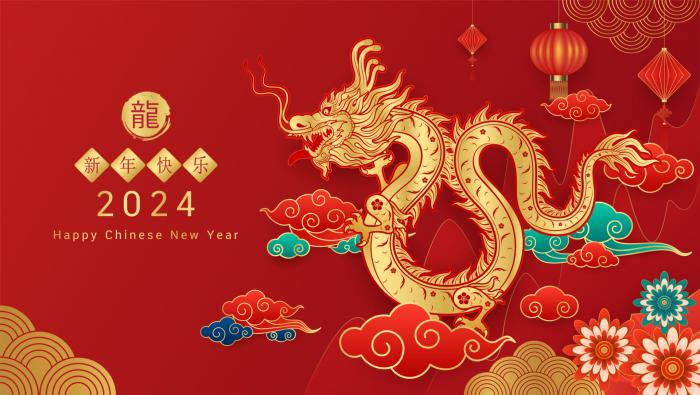Many Asian countries celebrate new year at this time, including Vietnam and Korea. Lunar New Year, often called the Spring Festival or Chinese New Year, is the most important holiday in China and and many other Asian communities. It is an annual 15-day festival that begins with the new moon between Jan. 21 and Feb. 20 in Western calendars. The festival lasts until the following full moon. The holiday began as a time for feasting and to honor household and heavenly deities, as well as ancestors.

How long are the Chinese New Year festivities?
Chinese New Year in 2024 falls on Feb. 10 and ends with the Lantern Festival on Feb. 24. Celebrations last up to 16 days; the Chinese public holiday lasts from Feb. 10 to Feb. 17.
What is the Chinese Zodiac?
The Chinese zodiac, or Sheng Xiao (生肖), is a repeating 12-year cycle of animal signs and their attributes, based on the lunar calendar.
The Lunar New Year marks the transition from one animal to another. The Year of the Rabbit, which began Jan. 22, 2023, ends on Feb. 9. Feb. 10 begins the Year of the Dragon. The Year of the Dragon last came in 2012.
Before the Lunar New Year
In preparation for the Lunar New Year, houses are thoroughly cleaned to drive away any bad luck from the previous year. It is also advised that you pay off any debts ahead of the new year, in part to close the books at the end of the year and start another year fresh.
Some additional traditions preparing for the lunar new year include putting spring festival couplets on doors or windows and buying new clothes.
New Year's Eve
On the morning of New Year’s Eve, people sweep the tombs of their ancestors, then return home. When they finish hanging Spring Festival couplets and red lanterns, it’s time for the big family reunion dinner. This banquet is believed to be the most important dinner of the year. Big families of several generations come together and enjoy delicious and lucky dishes.
In China, the foods served at these dinners vary from north to south. Northern Chinese cuisine tends to have dumplings and noodles; southern Chinese meals rely heavily on rice cakes. Traditionally, people give out red envelopes with money and light fireworks after dinner.
